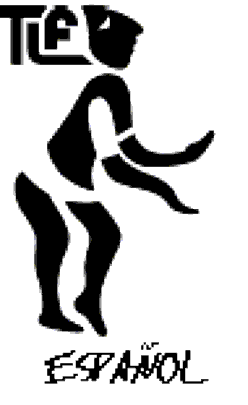
Vol. xliii # 1
December, 2021
A Trip Triptych
by David Inczauskis
 |
tlf news |
Vol. xliii # 1 |
December, 2021 |
A Trip Triptych by David Inczauskis | |||
|
After two years away from teatro la fragua, I returned December 4 to December 19 with a trio of motives: to join the theater's new administrative director Luis García on a trip to the Jesuit province office in San Salvador, to see the theater's abbreviated presentation of Navidad nuestra (Our Christmas), and to relaunch my book La Fragua: Central America's Jesuit Theater on stage in Progreso. But behind these motives, there was a greater one: to visit my friends, La Fragua's actors and staff. Picture 1 El Salvador, land of martyrs! Luis and I make an hour-long trip from San Salvador to Aguilares to attend Sunday mass at El Señor de las Misericordias Church, the parish where Rutilio Grande, SJ, was pastor at the time of his assassination in 1977. But the first memorable site driving into Aguilares is neither the town square nor the church but police tape. Half a dozen police cars are parked every which way. Officers examine black trash bags scattered on a dusty side road. We assume the worst. "So much for President Nayib Bukele's security plan," we comment. The pews fill up for mass. To the right of the main altar, roses surround a statue of Our Lady of Guadalupe. It's Sunday, but it's also December 12, the Morenita's Feast Day. To the left of the altar, there's a portrait of St. Oscar Romero, the bishop Rutilio Grande inspired with his work with Aguilares' poor peasants, work that would put a target on his head. The lonely road along which Grande and his companions were traveling on March 12, 1977, is no longer so lonely. Little houses now line the path between El Paisnal and Aguilares. On the side of the road, there's a small memorial with three crosses and a quote: "Let's all go to banquet at the table of creation, each one with their stool has a place and a mission." That quote by Rutilio continues to be repeated in songs, homilies, and graffiti throughout Central America. It, too, inspires the work of teatro la fragua, giving a voice to the Central American artists, securing a place at the table of global culture. Picture 2 Children laugh, smile, and clap as six cast members perform Christmas songs for the congregation. The play is abbreviated. There's just not enough personnel to perform the drama as normal. Several actors and actresses left the theater due to the financial strain of the pandemic, yet the troupe pushes forward. The COVID-19 protocols in Honduras make the legality of the performance highly questionable, but the theatre must continue to reach the people. It's a question of survival. No performances means no income, and no income means hunger. Staying in is not feasible in a colonized economy. A stray dog walks up and down the center aisle of the church. The bike of the former pastor, padre Juanito, rests against a wall in the background. People tells stories about padre Juanito and that bike. The deceased priest's ghost wanders the streets of Progreso. He's a friendly ghost. He helps those in need. He smiles at those who've had a bad day. He's emblematic of the popular piety of the Honduran people. He's a household saint. As the show ends, a parish leader invites the children to turn in old toys in exchange for new ones as part of a Christmas party. Most of the children have toy guns. Before giving up his fake pistol, one boy pretends to shoot another. His companion falls over in dramatic fashion. Perhaps he'll be an actor in teatro la fragua one day! And still the angel sings, "Peace on earth and mercy mild!" Picture 3 I'm not an actor, but I find myself on this stage under a spotlight. Only four years of teaching give me the courage necessary to stand before this audience with confidence. Friends of teatro la fragua, a handful of Honduran artists, and a few media representatives sit on the theatre's wooden bleachers. Two points anchor my talk. First, it's the Ignatian Year (1521-2021), and teatro la fragua's style has deep Ignatian roots. Just as Ignatius had his companions imagine biblical scenes, filling in the details that the Scriptures lack, actors and directors imagine the scenes in a script, fleshing out the words on the page. Second, it's the two-hundredth anniversary of Central America's independence (1821-2021) from the Spanish Empire, and teatro la fragua's Central American historical trilogy includes the play Alta es la noche, a piece that shows how dreams of a united Central America fell apart at the hands of local oligarchs in the years after the region's independence. Two points, two reasons why I continue to believe in teatro la fragua's mission. As a Jesuit, I know Ignatian spirituality's ability to connect people to God and to each other, and I know that la fragua creatively taps into our rich spiritual tradition to spread the good news of God's presence with us, with humanity, in all things. As a lover of justice and of Central America, I know that dreams of the downfall of oligarchy and the uplifting of the poor are alive in this land of martyrs, and I know that teatro la fragua keeps these dreams alive. |